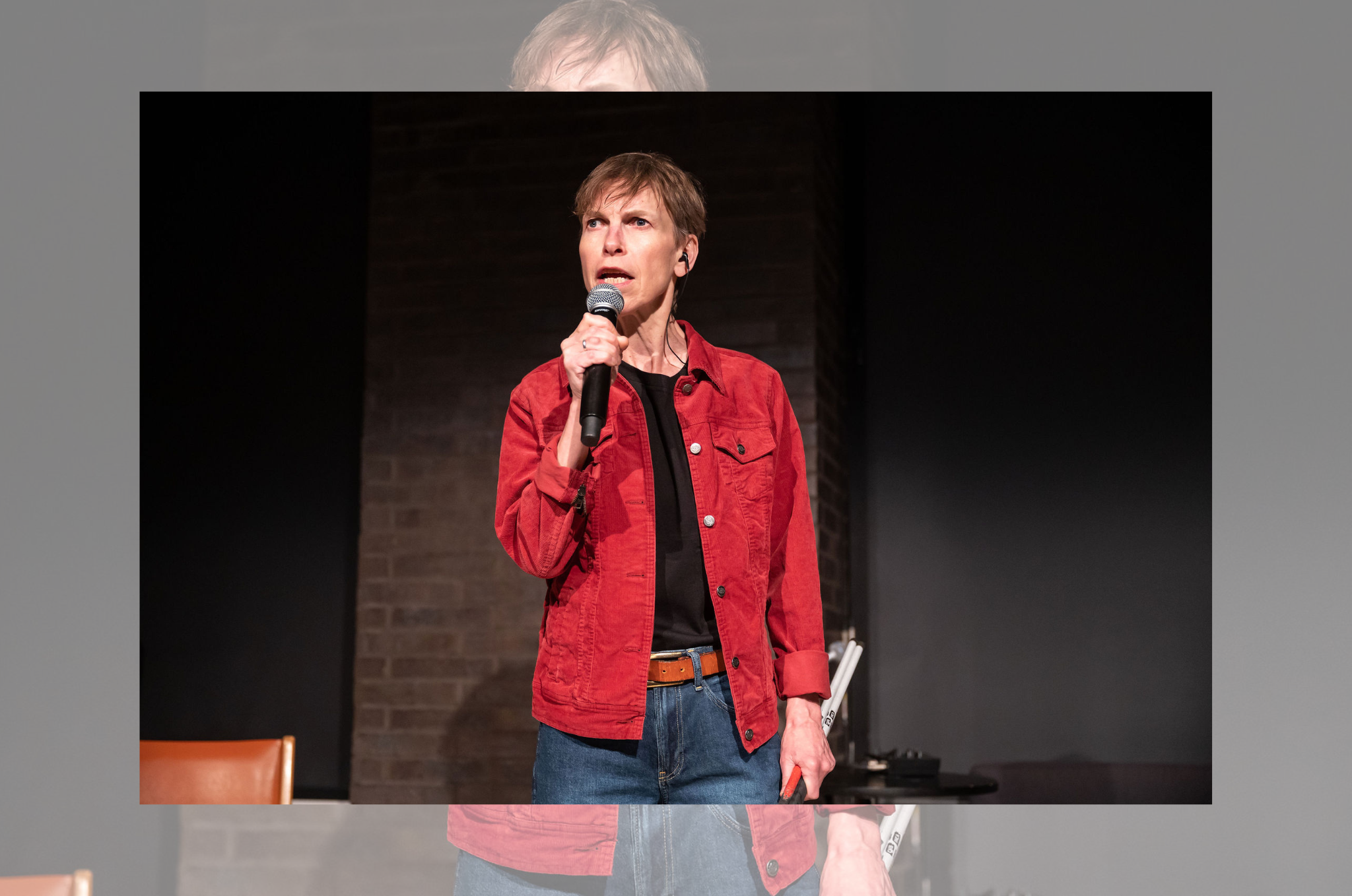REVIEW: Perceptual Archaeology (Or How to Travel Blind) at Fire and Rescue Team/Crow’s Theatre
When you enter the Studio Theatre at Streetcar Crowsnest, an usher hands you a soft stone. You can trace the grit, the rounded edges, the flat surface.
Inside this rock is a story – a story you can feel and intuit, rather than one you can see.
So goes Perceptual Archaeology (Or How to Travel Blind), the funny, poignant, solo-ish show written and performed by Alex Bulmer, who is blind and who has spent much of her life travelling.
That might sound surprising to a sighted audience, and Bulmer spends much of the show – or “talk,” as she frequently calls it – unpicking the joys and tribulations of travel in the absence of sight. In 90 or so minutes, Bulmer guides us through her experiences around the globe, inspecting the sensory diversity of the places she visits and testing the limits of her independence. The Studio Theatre is sparsely outfitted with a few blocks and seats, set pieces which serve as suggestions of furniture and plane seats and stairs, and quickly, Bulmer makes these structures her playground, the physical topography of her travel history.
Much of the cluster of travel Bulmer tells us about concerns a personal project – a travel writing endeavour, inspired by the trajectory of blind British travel writer James Holman. When Bulmer first applied for the funding for the project, she was obsessed with Holman, who documented his galavanting around the world through touch, taste, smell, and sound. In the absence of sight, Holman seemed to find an otherwise undiscussed texture to the experience of travel – and that magic captivated Bulmer, who at the time was still readjusting after slowly losing her sight.
The beauty of Perceptual Archaeology lies in the warm, intimate performance from Bulmer, who guides her audience through her memories and her blindness with lighthearted compassion. At the top of the show, she introduces us to her line feeder, Enzo Massara, who is sighted and sits in a corner of the theatre, speaking Bulmer’s lines to her through an earpiece. But Massara’s much more involved than being relegated to a corner – sometimes he physically guides Bulmer across the room, or sets up props for her, or stands in for the travel companions she’s brought with her across the world. Perceptual Archaeology is very much Bulmer’s show, sharply written and winningly orated, but it’s not quite a monologue – Massara and his rapport with Bulmer are integral to the story, bringing physical form to the interdependence Bulmer tells us about in her writing.
Leah Cherniak’s direction is impressive in its subtlety – so much of Perceptual Archaeology feels straight from Bulmer’s mind that Cherniak’s aesthetic touch floats over the text and performance, polishing the work but never overshadowing it. A genius moment, when Bulmer tells us about a visit to a church in Germany, brings both her and Massara into the lobby of Crow’s Theatre, out of the audience’s sight. For a few minutes, we only listen to the events of the play, rather than see them, and in those few moments the geography of the theatre itself and the places of Bulmer’s memories clash, bleeding together into an amusing, compelling auditory experience. Deanna H. Choi and Thomas Ryder Payne’s excellent sound design has helped facilitate that moment and others, weaving music into Bulmer’s narrative making sure the complex network of microphones never distracts from Bulmer or the world she’s built around her. Cherniak and Bulmer’s collaboration, too, shines in that distribution of the stones at the top of the play – the duo eventually connects these tactile objects with the stories in the air, and the effect is beyond heartwarming.
Perceptual Archaeology (Or How to Travel Blind) certainly touches on disability and its impact on everyday life, the infinity of choices about personal agency and space that many able-bodied people might not consider as they go about their lives — as well, the production’s accessibility measures available for those who might need them will make sure the show gets seen on a wider level (and it should be!). Thrillingly, the play also develops a lush network of the stories, encounters, senses, and words which have shaped Bulmer into the gifted artist she is today. A worthy watch at the Streetcar Crowsnest from one of Toronto’s most exciting artistic voices.
Perceptual Archaeology (Or How to Travel Blind) runs at Crow’s Theatre through June 25. Tickets are available here.
Intermission reviews are independent and unrelated to Intermission’s partnered content. Learn more about Intermission’s partnership model here.















Comments